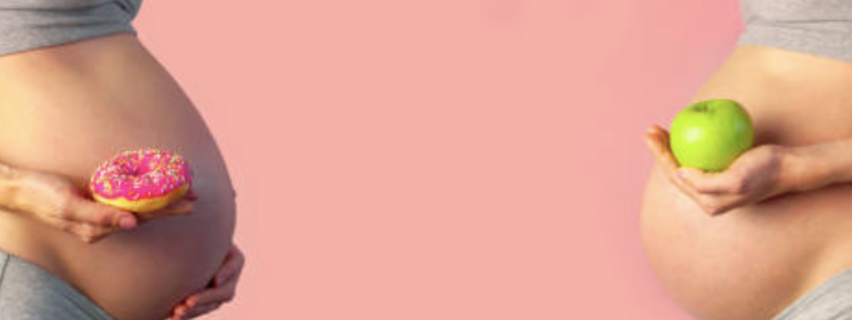Smoking During Pregnancy
Pregnancy is a miraculous journey marked by the creation of life and the nurturing of a new beginning. Within the embrace of this delicate process lies the responsibility to make informed choices that safeguard the health and well-being of both the expectant mother and her precious baby. Each decision made during this transformative period resonates with profound significance, shaping the trajectory of health for generations to come.
The act of carrying a new life within is awe-inspiring, but it also requires a heightened awareness of how our choices can influence the development of that life. This is where the dialogue surrounding smoking during pregnancy becomes crucial. Amidst the joy and anticipation of impending motherhood, it’s vital to engage with the reality that certain choices can have far-reaching consequences. Smoking during pregnancy isn’t merely an individual action; it’s a choice that impacts the vulnerable connection between a mother and her unborn child.

Is it Good to Smoke During Pregnancy?
Pregnancy is a time when information and advice come from every direction, often mingled with a chorus of opinions and myths. It’s crucial to address these fallacies and navigate through the haze of misinformation to arrive at the stark reality: smoking during pregnancy is unequivocally harmful, both for the expectant mother and her developing baby.
“Smoking Calms Pregnancy Stress“
Reality: While some may perceive smoking as a stress-reliever, it’s vital to understand that smoking doesn’t alleviate stress; it compounds it. The temporary sensation of relief is outweighed by the long-term harm posed to the developing baby’s health and the mother’s well-being.
“It’s Just One or Two Cigarettes – No Big Deal“
Reality: The harm isn’t mitigated by quantity. Even minimal smoking exposes the baby to harmful substances that disrupt growth and development. Smoking cessation remains the safest option for both mother and baby.
When it comes to the impact of smoking during pregnancy, there is a resounding consensus among healthcare professionals: smoking poses severe risks. The chemicals in cigarette smoke, including nicotine and carbon monoxide, restrict the flow of oxygen to the baby. This can result in low birth weight, premature birth, and developmental issues. Additionally, smoking increases the risk of pregnancy complications such as placental problems and miscarriage.
Risks of Smoking During Pregnancy
The developing baby relies on the mother’s body as its nurturing haven. However, when a pregnant woman smokes, harmful chemicals infiltrate this sacred space. The repercussions are profound and far-reaching. Smoking is linked to increased risks of low birth weight, a major concern as it can lead to health issues in infancy and even influence the child’s health in the long term. Babies born with low birth weight may face developmental delays, compromised immune systems, and a heightened susceptibility to infections.
Perhaps one of the most insidious consequences of smoking during pregnancy is the disruption of the baby’s oxygen supply. Nicotine constricts blood vessels, diminishing the flow of oxygen-rich blood to the placenta and the baby. This results in a cascade of potential issues, including restricted fetal growth and development, which may lead to preterm birth and related complications. A baby’s development during pregnancy is a delicate dance of intricately timed growth, and any interruption in this rhythm can have lasting effects.
While the effects of smoking are often focused on the baby, the mother’s health is also at risk. Smoking increases the likelihood of pregnancy-related complications such as placental problems, premature rupture of membranes, and even miscarriage. Moreover, the chemicals in cigarette smoke can elevate blood pressure and heart rate, both of which are concerning during pregnancy. These physiological changes can pose dangers for both the mother and the developing baby.
The risks of smoking during pregnancy reverberate through the intricate tapestry of life’s most delicate phase. As the baby grows within, the environment created by the mother’s choices sets the stage for lifelong health. Each inhalation of smoke magnifies the chances of adverse outcomes for both mother and baby. It’s a call to action, a plea to prioritize the well-being of these intertwined lives, and a reminder that the path to a healthier future begins with a smoke-free present.
What happens when a pregnant women smokes?
The act of smoking during pregnancy introduces a barrage of harmful chemicals into the mother’s bloodstream. These toxic substances, including nicotine, carbon monoxide, and various carcinogens, course through her veins, making their way to the womb that cradles the growing life. The placenta, a lifeline that nourishes the baby, becomes a conduit for these dangerous agents. The developing baby, in its formative stages, becomes unintentionally exposed to a cocktail of harmful elements that disrupt the intricate choreography of growth.
One of the most immediate and consequential impacts of smoking during pregnancy is the restriction of fetal oxygen supply. Nicotine, a chief component of cigarettes, narrows blood vessels, hampering the flow of oxygen-rich blood from the mother to the placenta and, subsequently, to the baby. The result is a compromised oxygen supply for the developing organs, affecting proper growth and development. This oxygen scarcity has far-reaching implications, potentially leading to low birth weight, preterm birth, and developmental challenges.
The placenta, a wondrous organ that sustains life, is significantly affected by the presence of harmful chemicals. Smoking disrupts its function, leading to an environment that is less supportive of fetal growth. Placental abruption—a serious condition where the placenta separates prematurely from the uterus—becomes more likely due to smoking, posing grave risks to both mother and baby. Moreover, the impact doesn’t stop at birth. Studies suggest that children born to mothers who smoked during pregnancy may be at a heightened risk for health issues such as asthma, cognitive impairments, and behavioral challenges.
By understanding the effects of smoking during pregnancy, we empower expectant mothers to make informed choices that safeguard the future of both themselves and their unborn children. It’s a journey of transformation—a choice to nurture life and lay the foundation for a healthier, brighter tomorrow. As we navigate the intricate landscape of smoking during pregnancy, our journey leads us to address pressing questions that encapsulate the concerns of expectant mothers worldwide.
Q1: Can you have a healthy baby if you smoke during pregnancy?
A1: While the human body possesses a remarkable ability to endure challenges, smoking during pregnancy introduces a layer of complexity that can compromise the health of both mother and baby. While some babies born to mothers who smoke may appear healthy initially, the risks of complications, low birth weight, and developmental challenges increase significantly. The wisest choice for a healthy outcome is to prioritize a smoke-free environment that nurtures the optimal growth and development of the baby.
Q2: How serious is smoking while pregnant?
A2: The seriousness of smoking during pregnancy cannot be overstated. The harmful chemicals present in cigarette smoke impact fetal growth, disrupt placental function, and restrict oxygen supply to the developing baby. This can lead to a range of potential complications, including preterm birth, low birth weight, and long-term health issues for the child. Moreover, smoking increases the risk of pregnancy-related complications for the mother as well.
Q3: Which trimester is smoking most harmful?
A3: Smoking poses risks throughout pregnancy, but the first trimester is a critical period when organ formation and development occur. During this time, the baby is particularly vulnerable to the harmful substances present in cigarette smoke. However, smoking’s impact isn’t limited to a single trimester; its effects can extend through all stages of pregnancy.
Q4: What are 3 dangers of smoking while pregnant?
A4: Three significant dangers of smoking during pregnancy include:
Restricted Oxygen Supply: Smoking narrows blood vessels, reducing the flow of oxygen-rich blood to the baby and potentially leading to growth and developmental issues.
Low Birth Weight: Smoking increases the risk of low birth weight, which is associated with health complications for the baby.
Preterm Birth: Smoking heightens the chances of preterm birth, which can result in health challenges for both mother and baby.










































Leave a comment